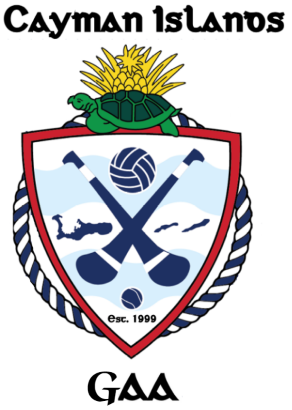OVERVIEW OF GAELIC FOOTBALL
Irish football (Gaelic Football) is a team sport that is played throughout the world. It and is played by teams of 15 on a rectangular grass pitch with H-shaped goals at each end.
It is played with a round ball and both hands and feet are used to control and pass the ball.
The primary objective is to score by driving the ball through or over the goals. If the ball is sent over bar of the goals, this equates to One Point, if it goes under bar, into the goalmouth, this equates to Three Points.
The team with the highest score at the end of the match wins.
The female version of the game is known as Ladies’ Gaelic football and is very similar to the men’s game, with just a few minor rule changes. Ladies Gaelic football is one of the fastest growing ladies sports in the world.
While Irish football is a contact sport it is not as physical as rugby or Aussie Rules and is suitable for all players of all sizes as skills are most important aspect of the game similar to soccer.
The game is now played throughout the world and is very popular with the ex-pat communities in many of the world’s cities. For children from Cayman it would be a great sport to play as they go abroad to work or study.
In Cayman at adult level it has the highest participation of any team sport with up to 250 adults playing each year.
Many sports people who play Soccer, Aussie Rules and Rugby also play Gaelic football, as the skills used are similar.
In fact, the skill picked up by players in this amateur sport makes them the most adaptable footballers in the world. They have gone on to play World Cup soccer, British and Irish Lions Rugby, NFL, AFL as well as for the Rugby League Lions side.
GAELIC FOOTBALL KIDS RULES
Scoring will be as follows:
Over the cross bar results in one point scored
Under the cross bar and between the posts will result in a goal worth 3 points.
Player may only take 4 steps with the ball in hand.
Player may only hold the ball in hand for the equivalent of 4 steps.
Player may bounce the ball and continue to run for a future 4 steps (may not bounce the ball twice in a row)
Player may play the ball from their foot back to their hands to retain possession (This may be done as many times as needed)
Player may not pick the ball directly off the ground but may only lift the ball with their toe.
Player may not throw the ball but may only release the ball from their hand with a kick or a definite striking motion with the hand.
Any time the ball goes out of play it is restarted by a kick back into play.
Players may only score with a kick of the ball. (A point may be scored with a fist strike but not a goal)
Players may only make a play on the ball with their hand when another player has the ball in their possession.
A tackle shall only consist of a shoulder to shoulder check. It is illegal to check a player anywhere other than their shoulder. (Note: For younger ages and for school teams recommend only a tackle on the ball)
No player is permitted to check another player who does not have possession of the ball.
Penalty for any infraction of the rules will result in a free kick. (This may be taken from the hands or from the ground and no player may interfere with the free taker.
Penalty for aggressive fouls will result in a warning with a yellow card.
Any future aggressive fouls by the same player will result in a red card and dismissal from the game.
GAELIC TRIVIA
Famous Sports People who have played Gaelic football:
New Zealand Rugby
"Were I an Irishman I'd play Gaelic football till the day I dropped dead,"
Quote from New Zealand legend Zinzan Brooke
Beauden Barrett
Irish Rugby- Present Irish Internationals
Tommy Bowe
Rob Kearney
Robbie Henshaw
Simon Zebo
Aussie Rules
Jim Stynes (Melbourne Football Club)
Tadgh Kennelly (Sydney Swans)
Soccer Internationals
Seamus Coleman (Everton and Captain of Ireland)
John O Shea (Man Utd, Sunderland and Ireland)
Shane Long (Southampton and Ireland)
Xabi Alonso (Liverpool and Spain)
